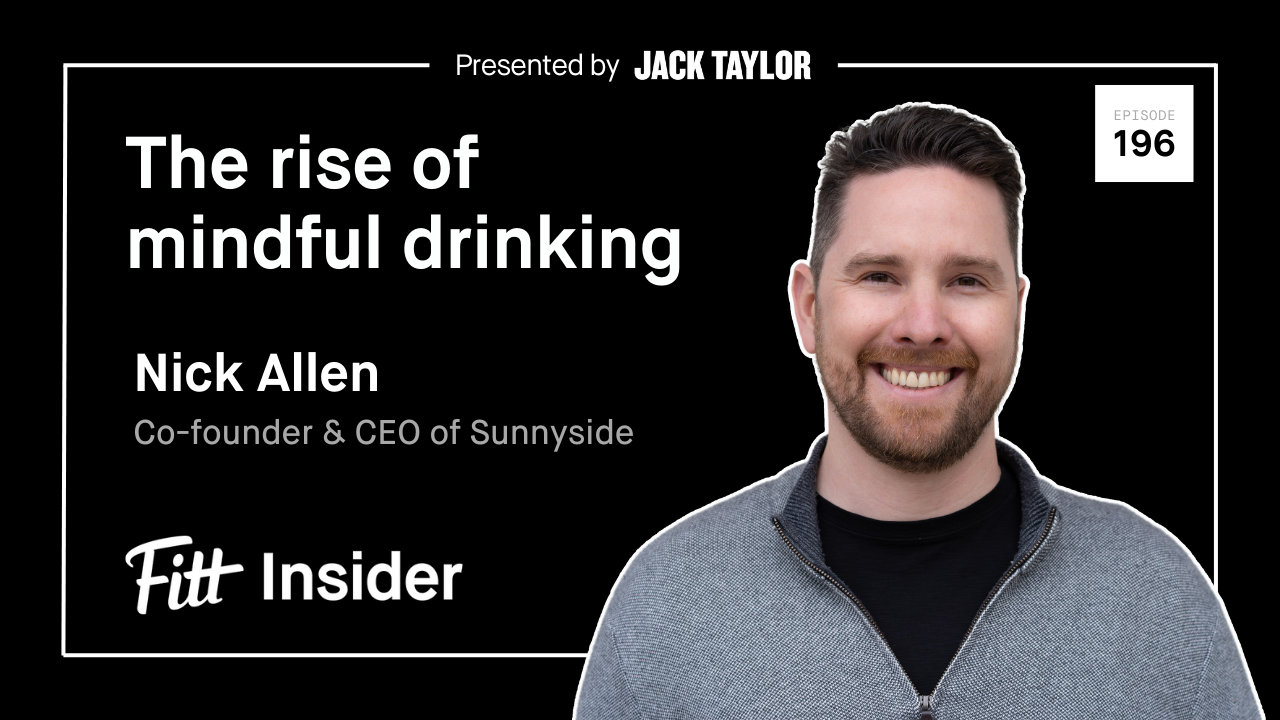Issue No. 243: Brain Care


With wellness on the mind, consumers are concentrating on brain health.
Health-Minded
From mood and memory to more serious neurological conditions, optimal brain function impacts every aspect of life.
But, despite its significance, there’s no universally accepted definition of brain health. Instead, overly broad descriptions of cognition and disease state act as a catch-all for this complex topic.
An important distinction, while some stakeholders conflate brain health and mental health, the WHO refers to them as separate but related concepts.
Evolving with perspectives on holistic well-being—where mental health, longevity, and lifestyle medicine have become central pillars—interest in brain care is growing.
- The global neuroscience market is expected to top $721B by 2026.
- Brain health disorders account for $3T of lost productivity every year.
- The number of studies referencing “brain health” has grown from <10 per year between 1989–2004 to nearly 2K in 2021 alone.
However, the category still lacks sufficient research into causes and treatments, as well as a shortfall of medical professionals specializing in the field.
Recognizing the societal imperative and business opportunity at hand, new approaches for maximizing brain health are taking shape.
Head Start
Taking aim at chronic neurological conditions, The Lancet recently called for a preventative approach to brain health and age-related brain diseases.
- Unhealthy lifestyle behaviors increase the risk of neurological conditions, including stroke, epilepsy, Alzheimer’s, and Parkinson’s.
- More than 40% of dementia cases and 70% of stroke cases are attributable to modifiable risk factors like smoking, obesity, physical inactivity, and poor diet.
Self-defense. Taking action, neuroscientist and Harvard professor Rudolph Tanzi sums up his advice for guarding against and reversing cognitive decline with the SHIELD acronym — which stands for sleep, handling stress, interacting with others, exercise, learning new things, and diet.
Of note, Tanzi emphasizes the importance of sleep in reducing inflammation and “cleaning” the brain. Similarly, a growing body of evidence suggests exercise is essential for brain health, capable of staving off neurodegenerative disorders.
Brain food. As knowledge of the gut-brain axis grows, the link between diet and cognitive performance is becoming more clear. More specifically, eating ultra-processed foods is linked to an increased risk of cognitive decline, while healthful options like the MIND diet can reduce dementia risk and improve brain function.
Smart pills. Still largely unproven, brain-boosting supplements are booming — with the nootropics category on pace to reach $30B by 2028.
Focusing on cognitive enhancement, companies like Thesis, BRAINLUXURY, and TruBrain are scaling up, following Unilever’s purchase of Onnit, makers of Alpha BRAIN, in 2021. A different approach, supplement makers Parable, Heights, and First Person have zeroed in on preventative “brain care”—a $9B market—to stand out.
Meanwhile, tapping demand for functional foods and beverages, nutritional bars from MOSH and IQBAR join a host of drink brands touting benefits for the brain.
High-tech. The next frontier, devices for quantifying and enhancing brain function are gaining traction. Neurable’s headphones and Wave Neuroscience’s headgear are consumer options for measuring and reshaping brainwaves. Meanwhile, Kernel’s helmet aims to transform precision neuromedicine.
Elsewhere, embedded brain-computer interfaces from Elon Musk’s Neuralink, Bill Gates- and Jeff Bezos-backed Synchron, and Precision Neuroscience see implantable chips as the path to diagnosing and treating neurological disorders.
Punchline: As brain health moves into the mainstream, population-wide interventions that account for socioeconomic factors and access to care are key to meaningful change. Meanwhile, as individuals seek to optimize brain care, experts like Tanzi recommend healthy habits above all else, noting “what’s good for the heart is good for the brain.”
🎙 On the Podcast

Sunnyside co-founder & CEO Nick Allen discusses the rise of mindful drinking.
We also cover: Alcohol’s impact on culture, relationships, and well-being.
Listen to today’s episode here
🛍 Sporty & Rich opens NYC flagship
The Instagram-born brand opened its first retail space in NYC’s SoHo neighborhood, selling its vintage-inspired gear alongside premium spa services and a health-conscious cafe.
Under the influence. The flagship accelerates its shift from apparel company to all-encompassing wellness brand.
- Sporty & Rich evolved from an Instagram account to a $30M business, with no outside funding.
- It debuted an online Wellness Club in 2020, followed by a coffee table book with interviews and essays on healthy living in 2022.
- It counts two successful collabs with adidas, a tennis capsule with Lacoste, a swimwear line with Solid & Striped, and luxury leisurewear with Hotel du Cap-Eden-Roc.
Founder Emily Oberg sees Sporty & Rich as a next-gen goop, with future plans for skincare, supplements, and full-blown health clubs.
Despite criticism of Gwyneth Paltrow’s cult-like goop empire, Oberg is running a similar playbook — leveraging the power of brand and value of a loyal social media following for further expansion:
“For me, it’s more about the world and the lifestyle that we’ve created rather than the product… I don’t think it really matters what we make. I think people just want something that’s Sporty & Rich.”
Brand before business. Sporty & Rich belongs to a wave of young brands stealing market share from apparel giants by niching down and promoting lifestyles first, products second.
- British luxury menswear brand Represent established its vibe on Instagram before branching into activewear with its 247 line; it expects £250M in revenue by 2025, up from £50M this year.
- District Vision, designed for spiritualists with high-fashion sensibilities, leveraged its loyal following to grow from sunglasses to full-fledged sports brand.
- Satisfy sells itself as the running company for anti-runners, evoking a punk-rock ethos with products like $130 Moth-Tech T-shirts.
From California’s Aviator Nation to Blogilates founder Cassey Ho’s POPFLEX capsules, the list of internet-born brands could go on and on. Meanwhile, Alo, the celebrity favorite for studio-to-street fits, has its sights set on a billion-dollar wellness empire.
Takeaway: Influencer-led lifestyle brands are capitalizing on the younger demographic’s desire for activewear that also signals their attitudes toward health, wellness, and fitness. With charismatic founders, experiential stores, and auras of exclusivity, the new class has made a collective dent in the mainstream — but their staying power has yet to be proven.
Storytelling is a superpower. But sometimes it’s hard to find the right words.
That’s where Jack Taylor comes in.
A team of creative storytellers and brand-builders, Jack Taylor is the PR partner behind companies like WHOOP, Athletic Greens, Levels, and many others.
Specializing in the health and fitness industry, they have an extensive network to help brands stand out.
Book a call: Complete this form to get started today.
🆕 HUME readies LA-based wellness club
A members-only wellness club with a focus on self-care, HUME is slated to open in Venice Beach, California next year.
Living well. Touting community and supporting balance, the concept will play host to fitness classes, nutritional services, and extensive recovery protocols, all while channeling the “slower pace and communal rituals” of traditional bathhouses.
According to co-founders Roger Briggs and Sandy Bole, the goal is to create an escape from the pace of modern life to something more conducive to holistic health:
“Pieces of what we desired were scattered throughout the world and enjoyed on special occasions but never readily available for our everyday routines. Through HUME, we have set out to build an intentional space devoid of distractions to unite these rituals.”
Join the club. Emerging from the pandemic, consumers are craving in-person experiences, and social clubs are scaling up to meet demand — reimagining the traditional third spaces for the wellness-obsessed.
- Sweat and Tonic, a social club combining boutique classes, biohacking, and community, will anchor Toronto’s forthcoming wellness development The Well.
- Meditation app Open’s new LA studio translates its digital classes into a physical timetable of signature movement, strength, and breathwork programming.
- Packaging luxe amenities with the traditional gym experience, Remedy Place and RSG Group’s HEIMAT and JOHN REED are in expansion mode.
Elsewhere, putting a modern twist on centuries-old culture, Othership, BATHHOUSE, and a slew of newcomers are fostering mental and social well-being with ice baths and saunas.
Punchline: Exercisers want to feel better mentally, physically, and socially. With countless studies citing community as an amplifier for all three aspects, member clubs solving the when and where may find their waitlists full and growing, regardless of price.
📰 News & Notes
- Biostrap debuts HRV-focused stress-sensing wearable.
- Aavia launches hormonal cycle-synced lifestyle planner.
- GNC adds telehealth, free prescriptions to its loyalty program.
- Daily Harvest enters retail via Kroger, reaches 1.1K supermarkets.
- Diagnostics and supplements firm Thorne HealthTech explores sale.
- Gap poaches Alo president Chris Blakeslee to engineer Athleta turnaround.
- Fitt Jobs: Break into the health & fitness industry with these growing companies.
- Startup Q&A: Monarch Athletic Club’s Dr. Ryan Greene on preventative wellness clubs.
- We offer sponsorship opportunities for select partners interested in reaching business leaders across health and fitness. See if your brand is a fit.
💰 Money Moves
- DTC health diagnostics company SiPhox Health raised $27M over seed and Series A rounds led by Khosla Ventures and Intel Capital, respectively.
- K Health, maker of an AI chatbot capable of providing patients with possible medical diagnoses, added $59M.
- Corporate retreat marketplace Offsite landed $3M in a seed round.
More from Fitt Insider: No Days Off - Athletic performance center Human Powered Health acquired Humango, an AI-enhanced performance training platform.
- Peppermint, an upskilling and social platform for adults 55+, secured $8M in seed funding.
- Practice Better, a business management platform for health and wellness professionals, acquired Toronto-based nutrition planning platform That Clean Life for “eight figures.”
- UpLift, an omnichannel behavioral health provider, raised $10.7M in a Series A round led by Ballast Point Ventures.
- AI-enabled employee caregiving platform Family First raised $11M in a Series A round.
- Filament Health, a natural psychedelic drug developer, filed to go public via a $210M SPAC merger with Jupiter Acquisition Corp.
- Vital Biosciences announced $48M in funding from Lachy Groom, Sam Altman, Marc Benioff, Labcorp, and others for its point-of-care blood testing platform VitalOne.
- At-home lab testing company Sanguina secured $2.8M in Series A funding led by Veritus Holdings.
- Clean-label cereal brand Seven Sundays raised $6M in growth capital from Sidekick Partners, Clover Vitality, and others.
- Specialty grocer Erewhon made an undisclosed investment in Zuma Valley, makers of organic coconut-based products.
Today’s newsletter was brought to you by Anthony Vennare, Joe Vennare, Ryan Deer, and Jasmina Breen.